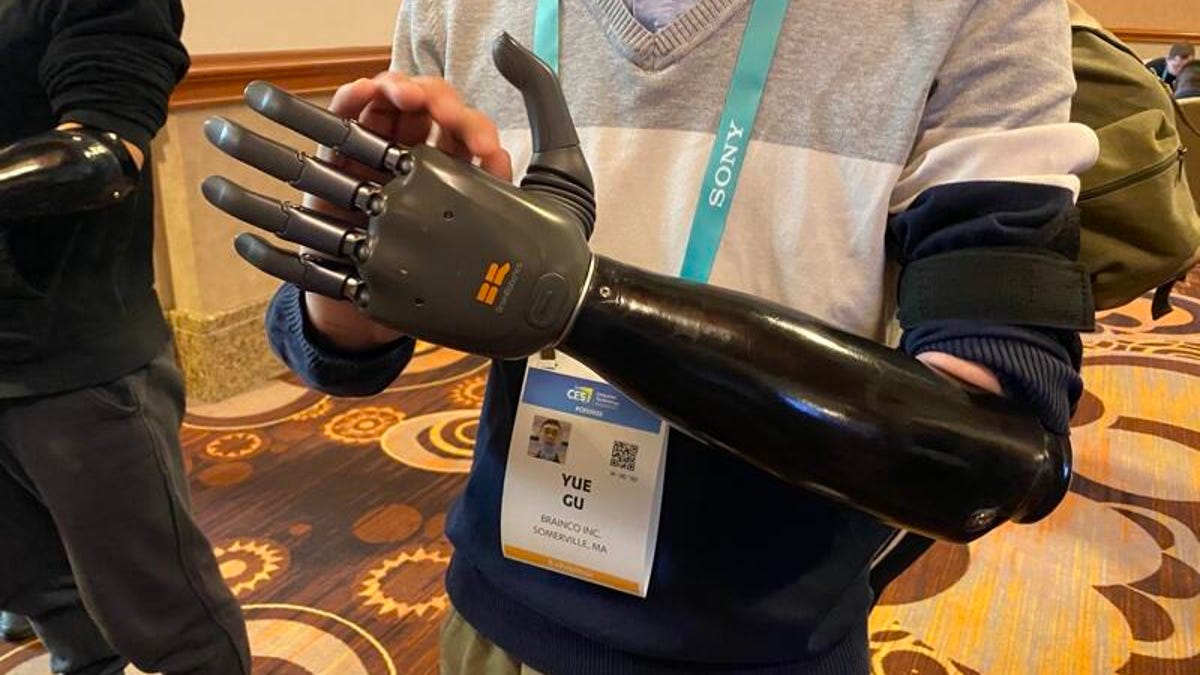You can move this prosthetic hand with your mind
BrainCo's prosthetic hand is undergoing FDA approval and will cost around $10,000.

BrainCo's prosthetic hand
A new AI-powered prosthetic hand that works with an amputee's brain waves and muscle signals to intuit the movement they want to make is now undergoing the FDA approval process.
BrainCo unveiled the final model of its prosthetic hand -- which was named one of Time Magazine's top 100 inventions of 2019 -- at CES 2020 on Monday. The company expects to have the hand on the market in the US later this year.
See also
- CNET's 20 favorite products of CES 2020
- All the cool new gadgets at CES 2020
- Full coverage of CES 2020
There are 2 million amputees in the US. Most prosthetic hands on the market fall into two categories: Metal hooks with limited functionality, or robotic prosthetics that rely on physical buttons or shaking the prosthetic to switch between predefined gestures.
"We came up with a new way to understand electrical signals coming from the brain, going into the residual limb of the amputee, and detecting the intention of the user," Max Newlon, president of BrainCo USA, told CNET.
Through a software platform, the user trains the prosthetic using those electrical signals to perform an unlimited number of gestures, down to moving individual fingers -- even playing a piano and writing calligraphy. This means amputees no longer have to rely on a limited number of preprogrammed movements and can customize the prosthetic to their own body, Newlon said.
On the platform, the user will see a visual representation of the prosthetic hand on the screen. The user clicks a button, and then manipulates the actual hand to essentially record a custom gesture. The system records the specific signatures the muscles give off. Every time the hand senses that specific signature, it will do the programmed gesture -- intuiting the movement they want to make.
It only takes about 5 to 10 minutes to program six gestures, Newlon said. The more you use the hand, the better and more lifelike it becomes, he added.
Another major benefit will be the cost: Typically, robotic prosthetics cost up to $60,000, even when they offer limited functionality. BrainCo's smart prosthetic hand will cost between $10,000 and $15,000.
Left and right hands are expected to be available later this year. The company is creating smaller prosthetic hands for children as well.
The BrainCo prosthetic hand is expected to be available later in 2020.

